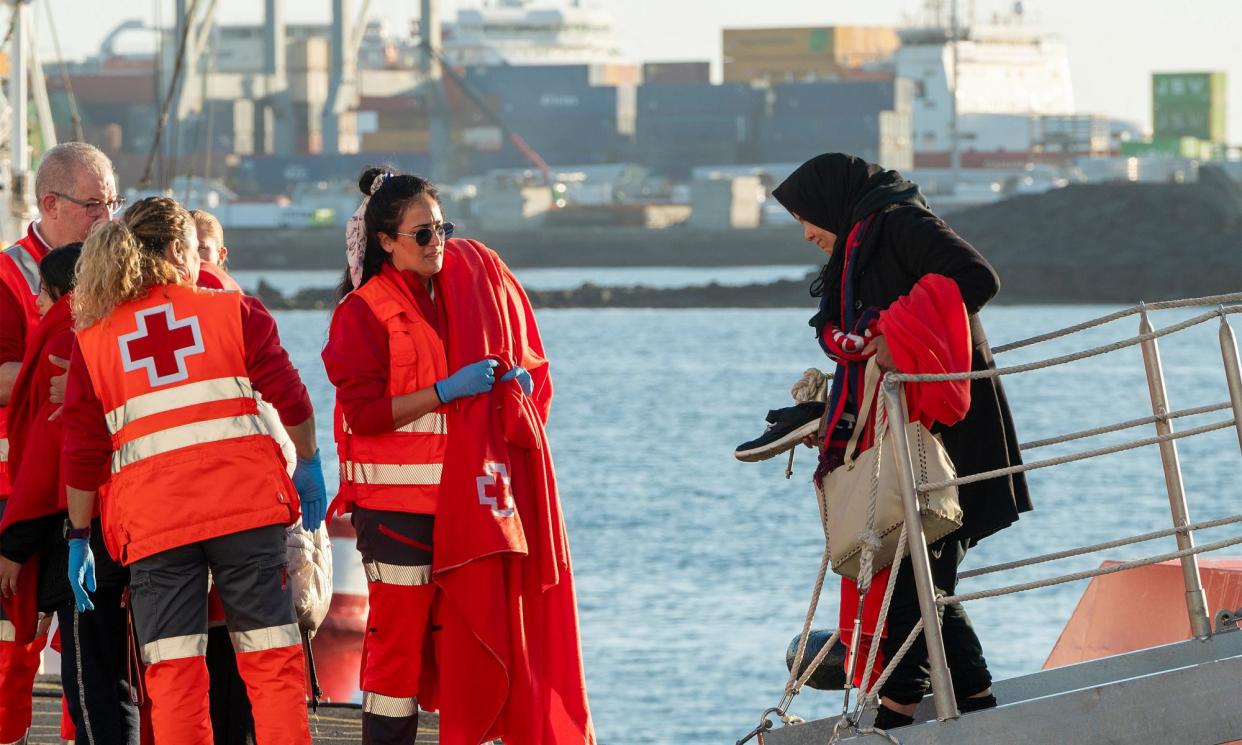Average of 18 people a day died trying to reach Spain in 2023

An estimated 18 people a day died or disappeared while trying to reach the shores of Spain last year, a leading NGO has said, as increased migration controls led to people taking more treacherous routes in the hope of making it to Europe.
The 6,618 people who died included 384 children, Caminando Fronteras (Walking Borders) said in its latest report, many attempting to reach Spain’s Canary Islands.
The figure is nearly triple that of the previous year, making 2023 the deadliest year on record since the organisation began keeping track in 2007, the report noted.
“2023 has been a terrible year,” said Helena Maleno, who leads the organisation. “It’s a massacre along the borders of the Spanish state.”
The report, which combines reports from the relatives of people who died or went missing with official rescue statistics, linked the steep rise in deaths to efforts to curb migration.
As border control is tightened across the Mediterranean and along the coasts of countries such as Senegal and Mauritania, people have increasingly set their sights on reaching the Canary Islands, setting off on one of the world’s deadliest migration routes in unstable vessels that are often unfit to face the fierce currents of the Atlantic.
A record number of men, women and children reached the Canary Islands by boat in 2023 – a 154% increase over 2022. The bulk of them landed on the westernmost island of El Hierro, meaning they had risked a crossing described in the report as the “longest, most dangerous route yet”.
Those who made it were the exception; last year 84 vessels plying routes to Spain vanished with everyone onboard, the report noted. “The Atlantic route has become the deadliest route in the world,” said Maleno.
While the victims hailed from 17 countries, nearly half were from Senegal, where political unrest, rising food prices and depleting fish populations have led to a rise in the number of children on the Atlantic routes. “In the last quarter of 2023, women and very young children, including babies, also began to make the crossing,” the report noted. “This is an entirely new development compared to previous activity on this route.”
People’s safety was being further jeopardised by a lack of resources for rescues, the report said. “In many of the tragedies that we have documented, search and rescue operations were not mobilised or were delayed for so long that people’s lives were put at risk,” it noted.
The report from Spain comes as campaigners in Tunisia sounded the alarm over an increase in mass expulsions and arbitrary arrests of asylum seekers, as authorities seek to crackdown on crossings from the north African country to Europe.
This week the Tunisian Forum for Economic and Social Rights accused the government of prioritising European demands and financial support over humanitarian concerns, citing witness accounts of dire conditions at the borders with Libya and Algeria and in the city of Sfax, a common transit point for people heading to Europe.
The organisation highlighted cases of arbitrary arrests and violence against migrants, including refugees, students, and workers. Reports of mass expulsions across the Algerian and Libyan borders have also surfaced, with people being deported into the desert and ending up in detention centres run by armed groups in war-torn Libya.
“Sovereignty is not achieved by intimidating vulnerable groups and resorting to outdated laws and discriminatory circulars, but rather by initiating national policies that guarantee dignity, rights and freedoms for all humans,” the Forum said.
In September an official from an intergovernmental organisation said Tunisian authorities had relocated more than 4,000 people in July to military buffer zones at the borders with Libya and Algeria, as migrants spoke of being forcibly returned to remote desert regions, where some had died of thirst.
Tunisian officials have acknowledged the pushing back of small groups of people across the desert borders but have denied allegations of systemic abuse.
Black immigrants living in Tunisia have been on edge since the president, Kais Saied, claimed in February that irregular migration from other parts of Africa was part of an international plot to change the country’s character.
Soon after, asylum seekers from sub-Saharan Africa were evicted from their homes while raids were carried out on the neighbourhoods in which they live.
Aid workers claim that many refugees, including from Yemen and Sudan, left the country immediately in shoddy metal boats. Many of them, they say, are still missing.


